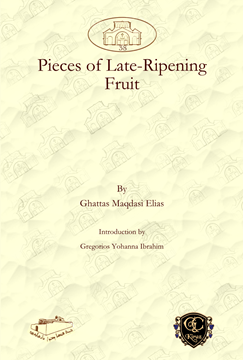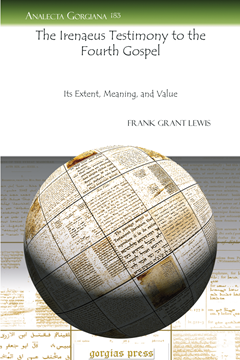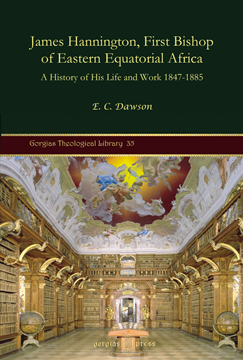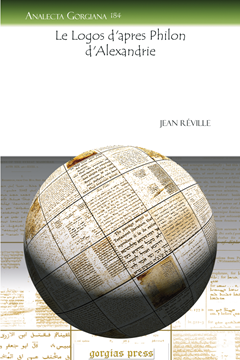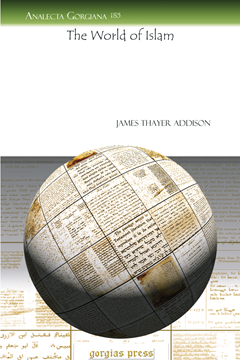Pieces of Late-Ripening Fruit
By Ghattas Maqdasi Elias; Introduction by Gregorios Yohanna Ibrahim
ISBN: 978-1-60724-276-5
Ghattas Maqdisi Elias, “Malphono Denho,” was perhaps the greatest Syriac poet of the twentieth century and a major figure in the Syriac literary revival which took place then. This book collects together a number of Maqdisi’s writings, including poems, a series of letters written to Abrohom Nouro, selected Syriac and Arabic essays, as well as the Maqdisi’s last interview (conducted in English).
$169.00 (USD)
The Irenaeus Testimony to the Fourth Gospel
Its Extent, Meaning, and Value
Series: Analecta Gorgiana 183
ISBN: 978-1-60724-277-2
One of the issues consistently plaguing New Testament scholars is the date of the Gospel of John. No consensus exists on this thorny dilemma. Looking at the world around the Bible, extrabiblical testimony often provides evidence for such questions. Insights drawn from Irenaeus are used by Lewis to help shed light on the topic. Noting the extent to which Irenaeus bears on the fourth Gospel, Lewis discusses the potential authors of John that could have been known by Irenaeus. Ending with modern conclusions to the issue, Lewis provides a useful summary of state of Irenaeus studies around the beginning of the twentieth century.
$45.00 (USD)
Bible History
Containing the Most Remarkable Events of the Old and New Testaments
Series: Kiraz Theological Archive 34
ISBN: 978-1-60724-278-9
Designed as a primer for Catholic children, this booklet became an historic fixture in American Catholic literature. Dividing the Bible into episodes easily understood by children, the author, Bishop Gilmour, explained in easy language, the Roman Catholic understanding of these stories. Wonderfully illustrated with classic woodcuts, this beguiling book also undertook to introduce the general overlay of church history to young readers.
$190.00 (USD)
James Hannington, First Bishop of Eastern Equatorial Africa
A History of His Life and Work 1847-1885
By E. C. Dawson
Series: Kiraz Theological Archive 35
ISBN: 978-1-60724-279-6
This classic account of the missionary life of James Hannington has delighted generations of readers. Written by an enthusiastic exponent of the mission field, this account has stood the test of time to become a recognized icon of the genre. The first Anglican Bishop of Eastern Equatorial Africa, Hannington was reared in a not untypical English setting, eventually being schooled at Oxford. His remarkable accomplishments and savage martyrdom are narrated with poignancy and empathy. A moving account of a man willing to risk all for his convictions, this missionary story appeals to popular readers and those interested in the European presence in Africa.
$205.00 (USD)
Le Logos d'apres Philon d'Alexandrie
By Jean Réville
Series: Analecta Gorgiana 184
ISBN: 978-1-60724-280-2
In this theological exposition on the concept of the Logos in the writings of Philo of Alexandria, Réville offers a probing piece of research. Beginning with the historical milieu of Philo’s time, he moves on to his main focus, playing out what the doctrine of the Logos is. Theologians who wish to know turn-of-the-century ideas concerning the Logos will find this irresistible reading.
$53.00 (USD)
The World of Islam
Series: Analecta Gorgiana 185
ISBN: 978-1-60724-281-9
This pamphlet is designed to help guide Churchmen and women in their reading on the Muslim world. At a time when, as Addison pointed out, Islam was throwing off the inertia of centuries and actively seeking to adopt the ways of the West, it was especially necessary to understand the beginnings, developments, and trends in that faith. Addison, who was one of the leading students of Islam in the Episcopal Church of his day, wrote this brief essay and appended it to descriptions of a few well selected books intended to give readers an understanding of the world of Islam.
$33.00 (USD)
